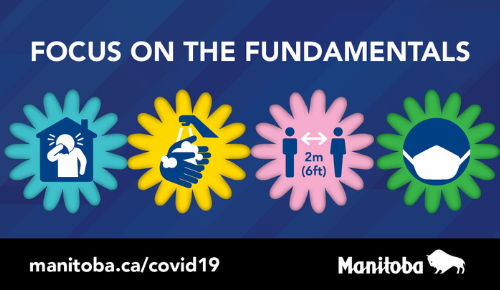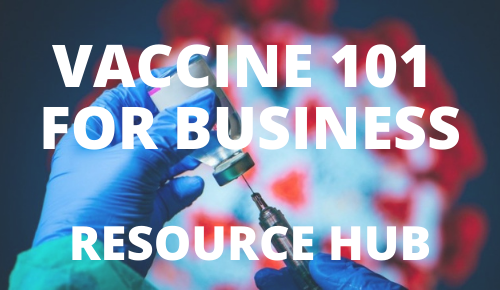By Vivian E Rachlis and Elissa A Neville
Disclaimer: This article was prepared for general information and discussion only and should not be used in substitution for legal advice. Originally published September 2020.
Human Resources professionals are trained to plan for any crisis; when it hits, HR staff are key members of a business’ command centre. COVID-19 has been the crisis that no amount of planning could anticipate. With virtually no warning, COVID-19 dramatically impacted workplaces, and HR professionals have had to hit the ground running to support their businesses and institutions.
Staff that can work from home have been encouraged (and in some cases ordered) to do so. Staff working from home are juggling childcare responsibilities – including homeschooling – while working to a deadline. Essential services workers are given the dual messages that they expected to carry on but not to come to work if they feel sick. Most people now know about “Zoom meetings.” Layoffs are occurring and businesses are eyeing their bottom line, wondering when they can start bringing back the staff they worked so hard to recruit “in the old days” – back in February 2020.

In the midst of so many dramatic changes, HR professionals have had to adapt quickly to a “new normal” set of employee expectations, and a new set of expectations in HR work.
Here are some examples of scenarios you may have already addressed in your work, or may soon be addressing:
- “We thought that with most of our staff working remotely, we would be seeing fewer harassment complaints. Instead, we are seeing a huge amount of bullying content in email.”
- “Our workforce experienced so much stress during COVID-19. We suspect that our employee Code of Conduct seems to have fallen to the bottom of the priority list. How do we find out what’s going on?”
- “We have a couple of staff who have been suggesting a connection between an employee’s ethnic background and the COVID-19 cases within our workplace.”
- “We suspect there has been an increase in sexual content in employee emails. How can we investigate this?”
- “Within our production facility, a couple of our staff were off sick with COVID-19. Thankfully, they recovered, but now that they’re back, some of our staff have been making mean-spirited jokes about them and excluding them from work events.”
Employers have the same obligations as before the pandemic to provide a safe and harassment-free workplace. This means that to be legally compliant – as well as to be able to continue to position themselves to attract a talented workforce – employers should continue their commitment to conducting fair and robust workplace investigations.
Adaptations to investigation methodology – particularly witness interviews – have been inevitable. Internal and external investigators have had to be nimble to try to ensure “business as usual” in HR investigations during the pandemic.
Whether internal or external, investigators need to focus on a number of criteria to make sure that investigations during COVID-19 and post-COVID-19 continue to be procedurally fair and robust: thorough, fair, trauma-informed, confidential, and timely.
We focus on the last three below.
Trauma-informed
A lot of investigative work involves contact with parties and witnesses that may already be undergoing some degree of previous trauma, or trauma relating to the events under investigation. This is particularly true at a time when parties and witnesses may be other-minded with how they can better support healthy practices in their jobs and with their families. At this sensitive time, investigators need to be mindful not to create further discomfort relating to interview processes and the collection of evidence.
Confidentiality
In-person interviews have generally been considered crucial to fact-finding and assessing credibility. With social distancing, in-person interviews may no longer be an option.
The good news is that COVID-19 has taught investigators a lot about how to interview (and assess credibility) by videoconferencing. Multiple platforms are available to conduct remote workplace investigations including Zoom, Microsoft Teams, GoToMeeting, and Webex.
Remote interviews raise new confidentiality considerations. Interviewing by videoconferencing also runs the risk of losing some control over the environment. Interviewers likely won’t know who else is “in the room”, there may be additional distractions, and it may be less obvious whether an interviewee is recording the interview (something we do not permit).
It is more important than ever to gently but firmly reinforce expectations at the beginning, during and at the end of a video interview:
- Make it clear that confidentially and privacy are paramount.
- Stress that no one should be in the room, or be able to listen in. Ask for a commitment that if someone enters the room where they are, they disclose this.
- If the interviewee’s support person, lawyer, or union representative is attending the meeting by video, explain that these expectations apply to them as well.
Timeliness
COVID-19 presented HR professionals and investigators with two imperfect options: conduct a video or telephone interview, or postpone the interview to some unspecified future date.
During the period that public health officials require social distancing, we strongly recommend pressing ahead while transitioning to “video mode.” We have several reasons for this. Overarching it all is the employer’s continuing duty to provide a safe and respectful workplace and to take seriously all cases of harassment, bullying, and other employment-related breaches. Other reasons include:
- Memories fade. It is well-researched that memories, and therefore evidence, deteriorates over time. Adjourning an investigation can jeopardize the quality of the evidence available to investigators, and potentially to the degree that a reliable investigation becomes no longer possible.
- We don’t have a crystal ball on this one. Scientists tell us there will be a treatment, and there will be a vaccine. Predicting when COVID-19 will be stabilized and when workplaces will get back to fully normal is like trying to predict the future: an imperfect exercise. While we are all craving stability, delaying interviews indefinitely doesn’t reckon with the uncertainty of the situation.
- The availability of reliable technology. As already noted, in many cases, video interviews will be highly satisfactory for gathering evidence. As never before, technology can facilitate highly effective fact-finding.
HR professionals and investigators should use their best judgment to assess whether the benefits of adapting their methodology outweigh the costs of waiting out the pandemic. By being adaptable and sensitive, workplace investigations can be approached from as close to a business-as-usual perspective as we can expect at this challenging time.
About the authors:
Rachlis Neville LLP (https://rachlisneville.com/) is a boutique law firm focusing on conducting independent workplace, regulatory, and institutional investigations.




